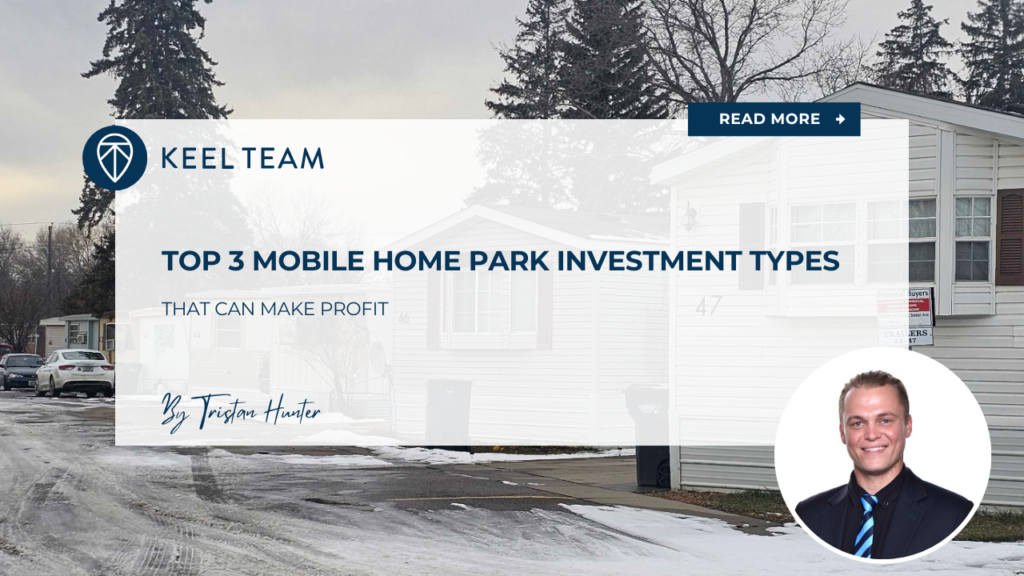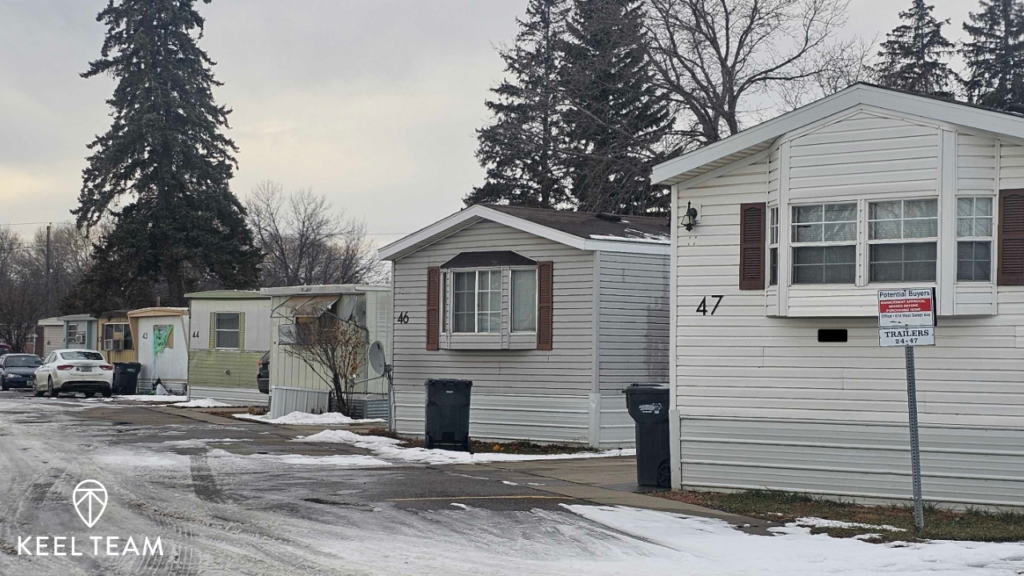Top 3 Mobile Home Park Investment Types That Can Make Profit
-
 Tristan Hunter - Investor Relations
Tristan Hunter - Investor Relations

The mobile home park asset class, much like any other real estate venture, is full of opportunities—and a few pitfalls. Some mobile home parks consistently generate profit, while others struggle. If you’re thinking of investing in a mobile home park, it’s essential to understand the different types that can potentially yield returns. This article will outline three mobile home park investment types that often appear to make money and one type to approach with caution. Keep in mind, that results vary, and nothing is guaranteed.
1. The Turnaround Asset
The first type of mobile home park that frequently generates profits is the turnaround mobile home park. These assets typically have prime locations and strong demand but are in poor condition. Why? Often, they have been owned and managed by “mom-and-pop” operators who may have neglected maintenance over the years. This neglect often results in issues like low occupancy rates and rents far below market value.
Why Turnaround Mobile Home Parks Can Be Profitable
When investors step in, they aim to revitalize the mobile home park by making improvements and addressing the factors that caused the initial decline. Sometimes, the problems are purely cosmetic, like landscaping or small repairs. Other times, more capital may be required to fix significant structural issues, upgrade utilities, or meet safety standards.
Despite these challenges, turnaround mobile home parks can become profitable because of two critical factors:
- Occupancy growth: Once the property is restored, more tenants would likely move in, especially if demand for affordable housing is strong in the area.
- Rent increases: Mom-and-pop owners often charge rents that are far below market rates. Bringing these rents up to the local average can potentially increase revenue.
While nothing is ever certain, many investors find that these trailer parks often turn around with the right strategy and careful investment.
Are you looking for mobile home park investing resources? Download our FREE eBook and learn more about partnering with an operator to invest in this space.
2. The Stabilized Asset
Another mobile home park that seems to make money is the stabilized park. These mobile home parks are generally already in good condition, with high occupancy and rents that align with market standards. Unlike a turnaround property, a stabilized mobile home park doesn’t require significant improvements. As an investor, your typical role is to manage the property and gradually increase rent to keep pace with inflation.
Why Stabilized Mobile Home Parks Can Be a Solid Investment
Stabilized mobile home parks can generate consistent returns without much hands-on effort. Here’s why:
- Inflation protection: Mobile home parks, like most real estate, can benefit from inflation. As the cost of living rises, so do rents, but your loan payments (if you have financing) usually remain the same. This can widen your profit margins over time.
- Steady occupancy: Generally, since these trailer parks are already operating smoothly, they often have a low vacancy rate. Stable demand means stable income, reducing the risks of revenue loss.
Investors looking for a less hands-on investment with long-term potential may find stabilized mobile home parks to be a great option.

3. The Redevelopment Asset
The third type of mobile home park investors often turn to is one purchased with the intent of redeveloping the land. While less common, this strategy can also result in significant returns. Some developers buy mobile home parks in prime areas where local governments may want to see them redeveloped into something else, such as commercial or residential properties.
Why Redevelopment Mobile Home Parks Can Be Lucrative
Mobile home parks are sometimes located in areas where cities would prefer a different use for the land. Redeveloping these properties can involve rezoning, which municipalities may support, given that mobile home parks are not always viewed favorably. By converting a mobile home park into a different type of development, investors could potentially unlock substantial value.
However, this strategy requires:
- Close coordination with local government: Zoning changes are not guaranteed, and some areas may resist redevelopment.
- Significant capital: Redevelopment projects often need a hefty investment and long-term planning.
Though less common, some investors have seen success with this strategy by turning low-performing mobile home parks into higher-value developments.
4. The Mobile Home Park Type to Avoid: No Future Growth
Lastly, there’s one type of mobile home park that investors often struggle with—those located in areas with little to no future growth potential. These trailer parks are usually found in very rural areas with small populations and no job growth. In these cases, even affordable housing demand is low, making it hard to attract new tenants.
Why These Mobile Home Parks Struggle
These mobile home parks often suffer from two critical issues:
- Low demand for housing: In areas with severely declining populations and few job opportunities, it’s hard to maintain or increase occupancy. Even affordable housing won’t fill up if no one is moving to the area.
- No redevelopment potential: If the area is not desirable, even redeveloping the land becomes a challenge. The mobile home park may end up as little more than empty land, with minimal use even in the long run.
Investing in a mobile home park with no future growth potential can be risky, as the chances of turning a profit are slim. These properties are often best avoided, as they may offer little return for the effort and capital invested.
Conclusion: Weighing Your Options in Mobile Home Park Investing
Mobile home parks can offer a range of investment opportunities, but not all trailer parks are created equal. Turnaround mobile home parks and stabilized mobile home parks often seem to generate steady returns when managed correctly. Redevelopment parks can offer a unique opportunity to capitalize on changing city landscapes, though this requires extensive planning and resources.
However, mobile home parks in areas with little demand or potential for growth may not provide the returns you’re hoping for. Every investment comes with its own set of risks, and while these three types of mobile home parks can offer profit potential, nothing is ever guaranteed.
If you’re considering an investment in a mobile home park, thorough research and understanding of the area’s growth potential and housing demand are crucial. Whether you’re revitalizing a rundown mobile home park or looking for steady returns from a stabilized one, being informed and strategic is likely key to making the most of your investment.
Book a 1-on-1 consultation with Andrew Keel to discuss:
- A mobile home park deal review
- Due diligence questions
- How to raise capital from investors
- Mistakes to avoid, and more!
Disclaimer:
The information provided is for informational purposes only and is not investment advice or a guarantee of any kind. We do not guarantee profitability. Make investment decisions based on your own research and consult registered financial and legal professionals. We are not registered financial or legal professionals and do not provide personalized investment recommendations.

Tristan Hunter - Investor Relations
View The Previous or Next Post
Subscribe Below 👇





